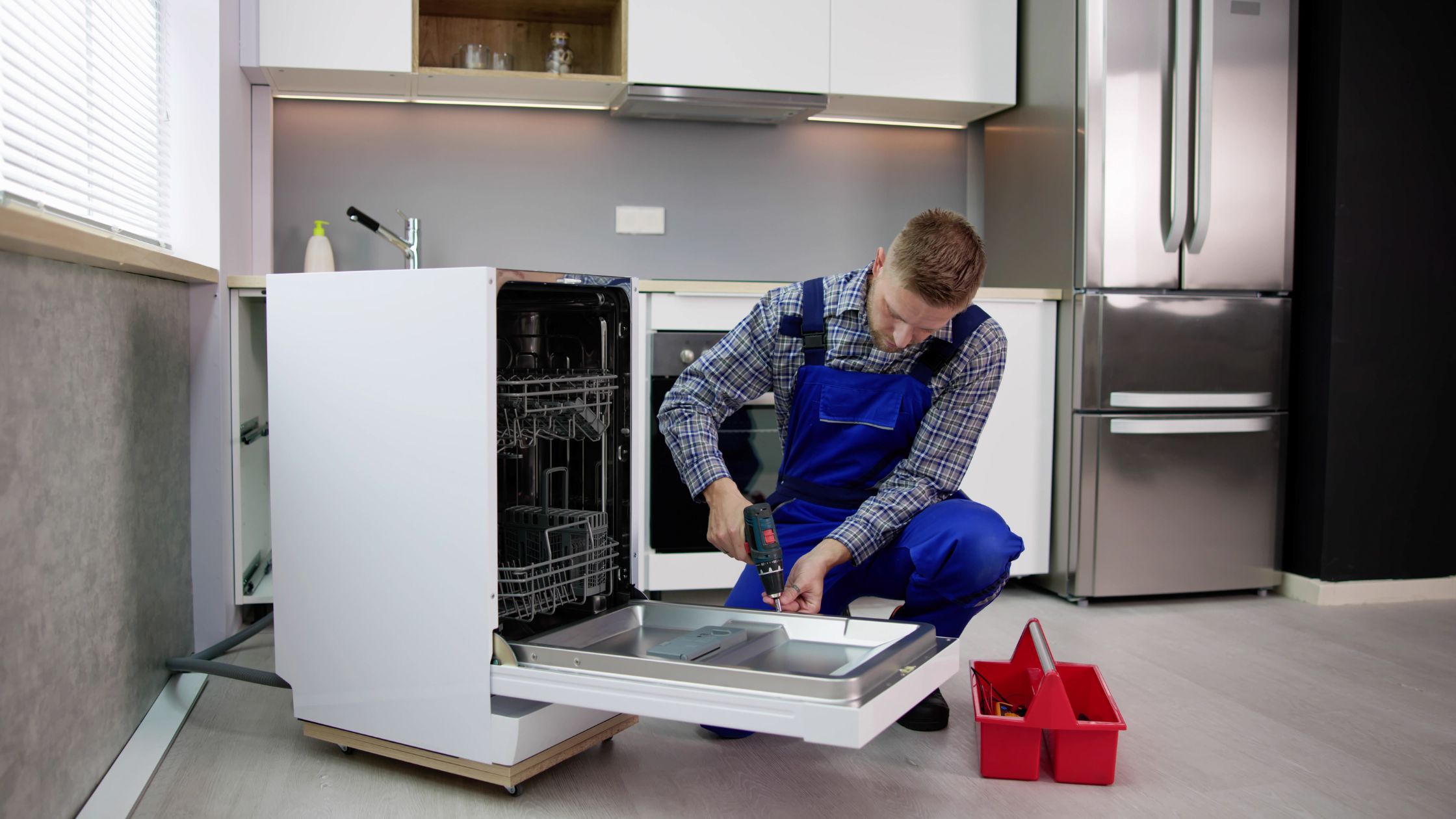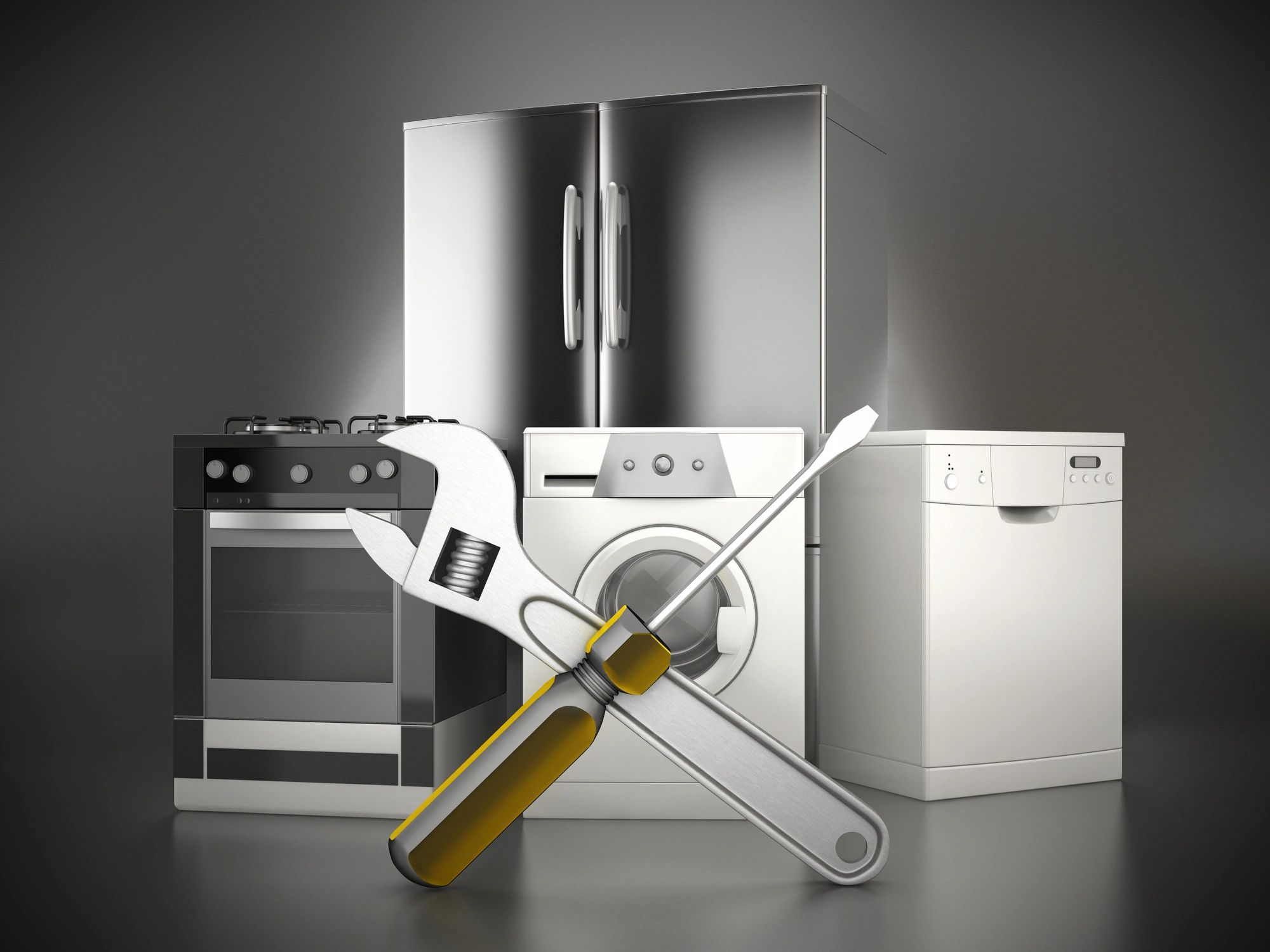The Ultimate Guide to Comprehending Appliance Repair in the house
When your refrigerator quits cooling or your stove rejects to heat, it can feel frustrating. Understanding device fixing at home can save you money and time. You'll learn to acknowledge symptoms, use essential devices, and adhere to an organized troubleshooting procedure. Before you start, there are essential security precautions you need to take right into account. What are the most usual troubles, and just how can you fix them? Allow's check out the basics.
Usual Home Appliance Troubles and Their Signs and symptoms
When your appliances begin acting up, it's necessary to identify the indications beforehand. Disregarding them can bring about larger concerns and expensive repair work. For example, if your refrigerator isn't cooling effectively, you could discover warm places or condensation creating. This can show a stopping working compressor or a blocked vent.Your dishwasher might reveal problems through unclean recipes or uncommon noises throughout cycles. If you hear grinding or clanking, it's time to investigate.A washing equipment that won't spin or drain pipes can leave you with soggy washing, recommending a clogged drain or a malfunctioning pump.Lastly, if your stove's temperature level seems off or it takes forever to pre-heat, you may be handling a faulty thermostat. By staying sharp to these symptoms, you can address problems before they rise right into major repair work.
Essential Tools for Home Appliance Repair Work
When you're dealing with appliance repairs in your home, having the right tools is vital. Standard hand tools like screwdrivers and pliers will certainly aid you dismantle and take care of different appliances, while electrical screening devices assure you're functioning safely with electrical wiring. Let's go over what you require to begin on your repair work trip.
Standard Hand Devices
Having the right devices is crucial for effective home appliance repair work in your home. Beginning with a dependable screwdriver set, consisting of both flathead and Phillips kinds, as screws prevail in home appliance setting up. Pliers are additionally important; they help with gripping, twisting, and reducing wires or little components. A set of needle-nose pliers can get to limited spots quickly. You'll need a good adjustable wrench for tightening up or loosening nuts and screws. An energy knife comes in handy for puncturing product packaging or insulation. Do not forget a sturdy workbench or surface area to safely arrange your devices and parts. With these basic hand devices, you'll be well-prepared to take on most appliance fixings that come your means.
Electric Testing Devices
Together with fundamental hand tools, electric testing gadgets play a crucial role in home appliance fixing. These tools help you detect electrical concerns and guarantee devices work securely. A multimeter is essential; it measures voltage, existing, and resistance, allowing you to pinpoint problems promptly. A non-contact voltage tester is one more must-have, allowing you discover online cables without making direct call, enhancing your safety. Secure meters are excellent for determining existing circulation in wires without disconnecting them, conserving you effort and time. Furthermore, circuit testers can swiftly examine if electrical outlets are operating effectively. By utilizing these devices, you'll simplify your troubleshooting process and enhance your repair skills, making device upkeep a whole lot much easier.
Step-by-Step Guide to Diagnosing Device Issues
When your device acts up, it can be frustrating, yet detecting the issue doesn't have to be overwhelming. You'll find out to recognize usual troubles and use effective troubleshooting strategies. Let's go through the steps to get your home appliance back in working order.
Usual Appliance Problems

Troubleshooting Methods Explained

Repairing Significant Kitchen Area Home Appliances: A Closer Look
Have you ever asked yourself just how to deal with common issues with your kitchen area appliances? Fixing significant kitchen devices like fridges, stoves, and dishwashers can be simpler than you believe. Beginning by identifying the issue-- whether it's a refrigerator not cooling down or a stove that won't heat. Often, a simple reset or inspecting the power source can address the issue.For fridges, clean the condenser coils and inspect the door seals. If your oven's not heating, evaluate the burner and thermostat. Dish washers might just require a clean filter or a reset to get them back at work. Constantly disconnect the home appliance prior to diving into fixings to assure your safety.Don' t fail to remember to get in touch with the customer manual for details repairing suggestions connected to your model. With a little bit of perseverance and the right devices, you can confidently deal with device repair work and save money while doing so!

Repairing Laundry Appliances: Tips and Techniques
When your washing home appliances begin breaking down, it can feel frustrating, however troubleshooting them does not have to be a problem. Start by checking the power supply. Validate the appliance is plugged in and the electrical outlet is functioning. Next, check the door or cover button; a defective button can protect against the equipment from operating.For washing machines, if it's not spinning, check for unbalanced lots. Redistributing the clothing may resolve the problem. If your dryer isn't home heating, clean the dust filter and examine the vent for blockages.Listen for uncommon sounds; they can suggest an issue. If your home appliance is dripping, examine the pipes for splits or loosened links. Record any kind of error codes presented on electronic displays, as they can direct you in identifying the issue. Ultimately, seek advice from the user guidebook for details fixing tips related to your model.
Security Preventative Measures to Take Throughout Repair works
Before you begin any device repair work, it's necessary to focus on security to protect against mishaps or injuries. First, unplug the appliance or shut off the circuit breaker to ensure no power reaches it while you work. Usage protected devices to lessen the threat of electric shock. Use security goggles and handwear covers to protect on your own from sharp sides or debris (Dependable Refrigeration & Appliance Repair Service Washer repair near me).Make specific your work space is neat and well-lit, so you can see what you're doing. Maintain youngsters and pet dogs far from the location to avoid interruptions and potential hazards. If you're dealing with gas home appliances, be additional mindful; look for leaks before proceeding.Take your time, and do not rush through fixings. If you really feel unsure about any step, it's much better to stop and research than to guess. Following these safety measures will certainly assist create a more secure environment for your do it yourself device repair work project
When to Call a Specialist for Help
How do you know if it's time to employ an expert for appliance repair services? If you've tried standard troubleshooting without success, it's a clear indication. If your appliance still will not start or shows uncommon noises after resetting it, do not be reluctant to look for expert help.When you observe leakages, smoke, or shedding smells, prioritize safety and security and call a pro quickly. These problems can cause more significant damages or pose risks to your home.Also, if your home appliance is under service warranty, getting in touch with a specialist is commonly the finest course. They can assure that repair work won't void your warranty, conserving you money in the lengthy run.Finally, if you're unsure or awkward with complicated repairs, it's smart to leave it to the specialists. Remember, dealing with difficult problems without the best competence can result in costly errors. Trust a professional when doubtful!
Frequently Asked Questions
Exactly How Can I Prevent Appliance Problems in the Future?
To avoid device troubles in the future, you ought to execute regular maintenance, look for wear and tear, tidy filters, and prevent overloading. Remaining positive will certainly help expand their life expectancy and maintain them running smoothly.
What Are the A Lot Of Usual DIY Home Appliance Repair Work Mistakes?
You could forget safety and security precautions, miss repairing actions, or make use of incorrect devices when attempting do it yourself home appliance repair work. Hurrying the process or neglecting producer standards can cause more significant problems and expensive mistakes. Keep individual and notified!
How Do I Know if a Part Needs Replacement?
You can inform if a component requires substitute by looking for uncommon noises, leakages, or inconsistent performance. If the device battles to operate properly or shows noticeable damages, it's most likely time for a replacement.
Can I Make Use Of Generic Components for Device Services?
Yes, you can use generic parts for appliance repairs, yet identify they're suitable - Dependable Refrigeration & Appliance Repair Service Washer repair near me. Generic components may save you cash, yet they might impact efficiency or long life, so consider your options very carefully before making a decision
What Guarantees Cover Device Repairs?
The majority of home appliance guarantees cover repairs for making problems, however they often exclude damage from abuse. Check your service warranty terms meticulously, as some may require using licensed service technicians and original components for insurance coverage to stay valid.
Comments on “How to Replace a Washer Drain Pump – Washer dryer repair service Dependable Refrigeration”